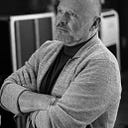True North Leadership — How Can Leaders Learn to Flow?
When was the last time you were totally subsumed in a task? You lost track of time. Nothing distracted your focus. You knew exactly what you were doing and how you would reach the goal.
There’s a name for that. It’s called “flow.”
I’ll admit it. I may well be the last leader on the planet to become intrigued by the notion of flow. Until very recently, if asked, I would have ventured a guess that defined flow as some sort of urinary concern. Sorry if that offends.
But as my wife was writing a new episode of her radio program on the spiritual applications of this “positive psychology” theory, I also began digging in, to find leadership applications.
Turns out Mihaly Csikszentmihalyi, who is considered one of the co-founders of positive psychology, was the first to identify and research flow. Flow has been described as an intrinsically rewarding experience that helps one (or a team) achieve a goal or improve skills. It occurs in various situations: creative endeavors, work or play. And as a “state,” it tends to be reached when a person’s skills are so fully involved in overcoming a “manageable” challenge and simultaneously, overcoming boredom — or a lack of activity.
Who cares, and why might flow be important?
Researchers have learned that when individuals are in this state of flow, they perform at peak levels. Productivity soars along with a deep sense of fulfillment. Work or play — the result is great enjoyment. It’s like being in the zone. Nothing else matters. No distractions are attractive. Focus is full. And the results are personally and professionally beyond satisfaction.
You’ve seen it in elite athletes. Michael Jordan winning a championship despite fighting the flu.
Or, Simone Biles, the most decorated American gymnast in history, performing for all the world to see but oblivious to everything else going on around her.
And you definitely saw Anya Taylor Joy’s Beth Harmon in The Queen’s Gambit lose all track of time and events surrounding her global chess exploits.
When you watched MJ or Biles or the fictional Harmon performing, you saw supreme examples of someone in the flow. Is something like that possible for leaders and their teams?
Here’s what we’ve learned. Several factors must fall into place to achieve flow.
· The leader’s goals must be clearly communicated.
· Meaningful and relevant feedback is provided throughout the process.
· And the fit issues: skill, experience and expertise are aligned with the task.
· Attention on the project is finely focused.
· Self-consciousness issues disappear and simultaneously, one feels stronger and more fulfilled than usual.
· Time becomes irrelevant — hours pass by without notice.
When you work in this “space,” your body and mind are fully functioning and the task becomes worthy of herculean efforts for its own sake. And when you develop flow in your organization, the benefits are both obvious and profitable:
· The word gets out. Hiring is easier: you’re able to attract highly capable team members.
· You retain your best and brightest employees longer; they’re happier, more fulfilled and thus, friendlier to others.
· They experience far greater on-the-job levels of satisfaction; they experience greater levels of creativity from expanded opportunities to take smart risks and constantly improve their processes.
· The rising tide lifts all boats — all sectors of your organizational system rise together.
· Customers experience new levels of delight in your brand and product(s).
Imagine the difference such a positive flow will make in your enterprise. Who doesn’t long for this type of caring, focused and successful environment?
So, the question for leaders is: how do I achieve flow and how might I inculcate this concept into my enterprise — how can my employees and even my customers attain this level of gratification and enjoyment?
Here’s the bad news. I will suggest that being in a constant state of flow is nearly impossible. Nearly.
But next week’s blog is filled with application specifically targeted to the True North Leader.
Norm Mintle
Dr. Mintle holds an earned Ph.D. in Organizational Leadership. He has served in executive positions across a broad range of media organizations and as a dean in two universities.
